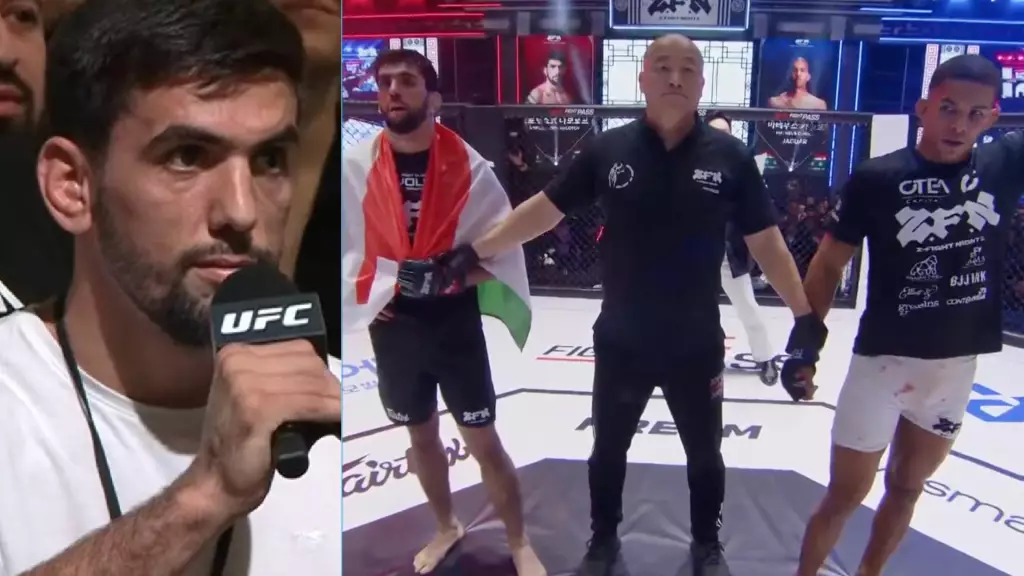In an audacious move that captivated the MMA community, Dorobshokh Nabatov boldly requested a UFC contract from Dana White during a press conference in October. This public declaration not only showcased his ambition but also set the stage for a remarkable opportunity that few athletes ever experience. Nabatov, an up-and-coming talent with an 8-0 record, appeared poised to make a significant leap in his career. His bold request took him from relative obscurity to the spotlight, all eyes eagerly watching the next chapter of his journey.
Fast forward to his much-anticipated bout at Chan Sung Jung’s Z Fight Night 2 in Goyang, South Korea, where Nabatov faced off against the rising star Matheus Camilo, who entered the cage with a record of 9-2. Unfortunately for Nabatov, the fight did not unfold in his favor. Demarcated by a split decision, the match revealed critical flaws in Nabatov’s fight strategy, as he was outmaneuvered by Camilo’s versatility and athleticism.
Dana White’s analysis following the fight starkly defined Nabatov’s performance. White characterized him as “one-dimensional,” an assessment that underscored the necessity for fighters in this elite arena to be well-rounded in their skills. The defeat marked Nabatov’s first career loss, but more importantly, it carried with it valuable lessons about the importance of adaptability and preparation in high-stakes competition.
The day after the fight, White announced the awarding of a UFC contract to Camilo. His choice reflected not just the result of the match but also the qualitative aspects of performance that captured the attention of the promotion’s president. White emphasized Camilo’s comprehensive skill set and effective fight strategy, which proved decisive against a challenger who failed to evolve throughout the match. The contrast between the two fighters rendered Nabatov’s singular focus ineffective, shedding light on the need for continuous growth and strategic sophistication in mixed martial arts.
Interestingly, the fight unfolded against the backdrop of South Korea’s martial law, which led to White’s remote scouting of the event. His absence, amplified by the implications of regional unrest, added another layer to Nabatov’s narrative, illustrating how external factors can shape an athlete’s trajectory in unpredictable ways.
For Dorobshokh Nabatov, this defeat may serve as a valuable turning point in his career. The lessons learned from this experience could act as the catalyst for his evolution as a fighter. In the high-octane world of the UFC, where competition is fierce and even slight missteps can be detrimental, understanding the necessity for a diverse skill set and a resilient mindset is crucial for long-term success.
As he returns to the drawing board, Nabatov has the opportunity to re-assess his training regimen and fight strategy. With the right adjustments, he could very well convert this setback into a springboard, preparing to rise again and earn that coveted UFC contract in the future. So, as the curtain falls on this chapter, one must wonder: how will he transform this moment of adversity into an opportunity for greatness?

